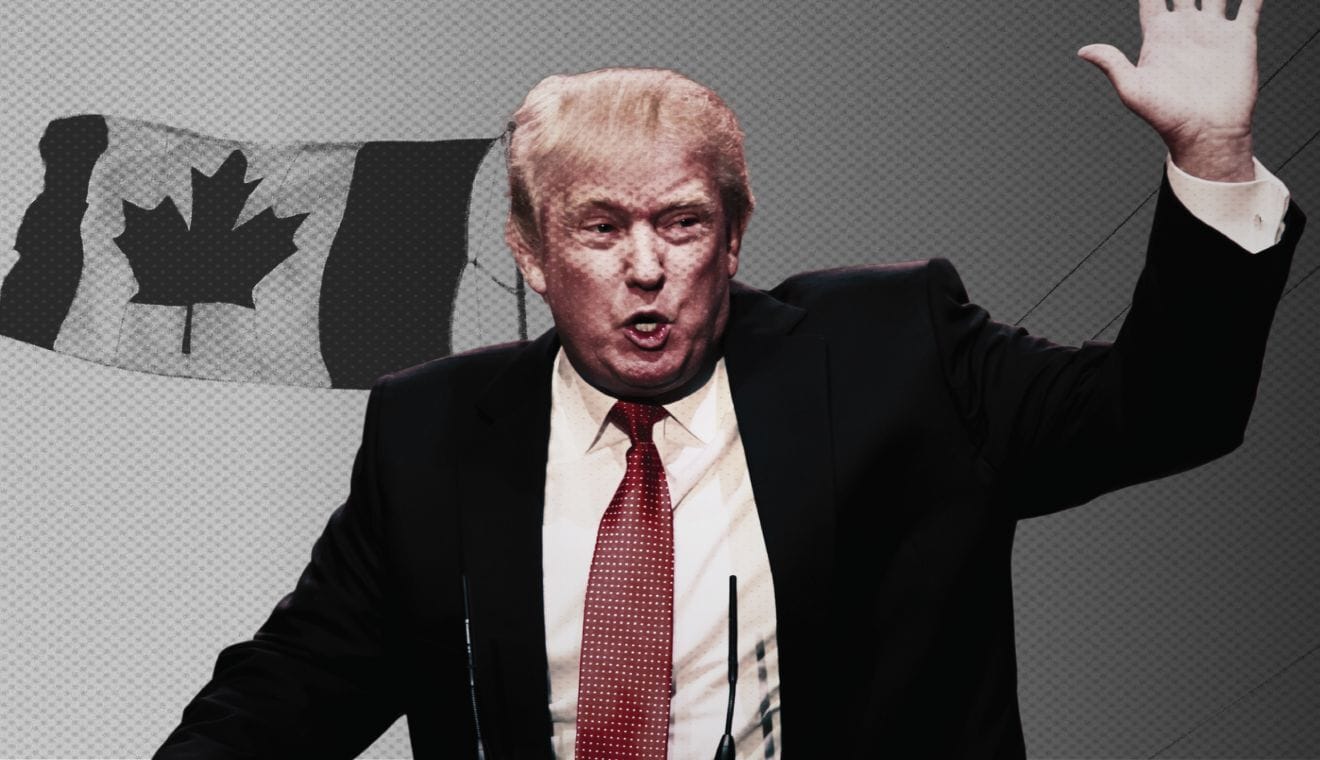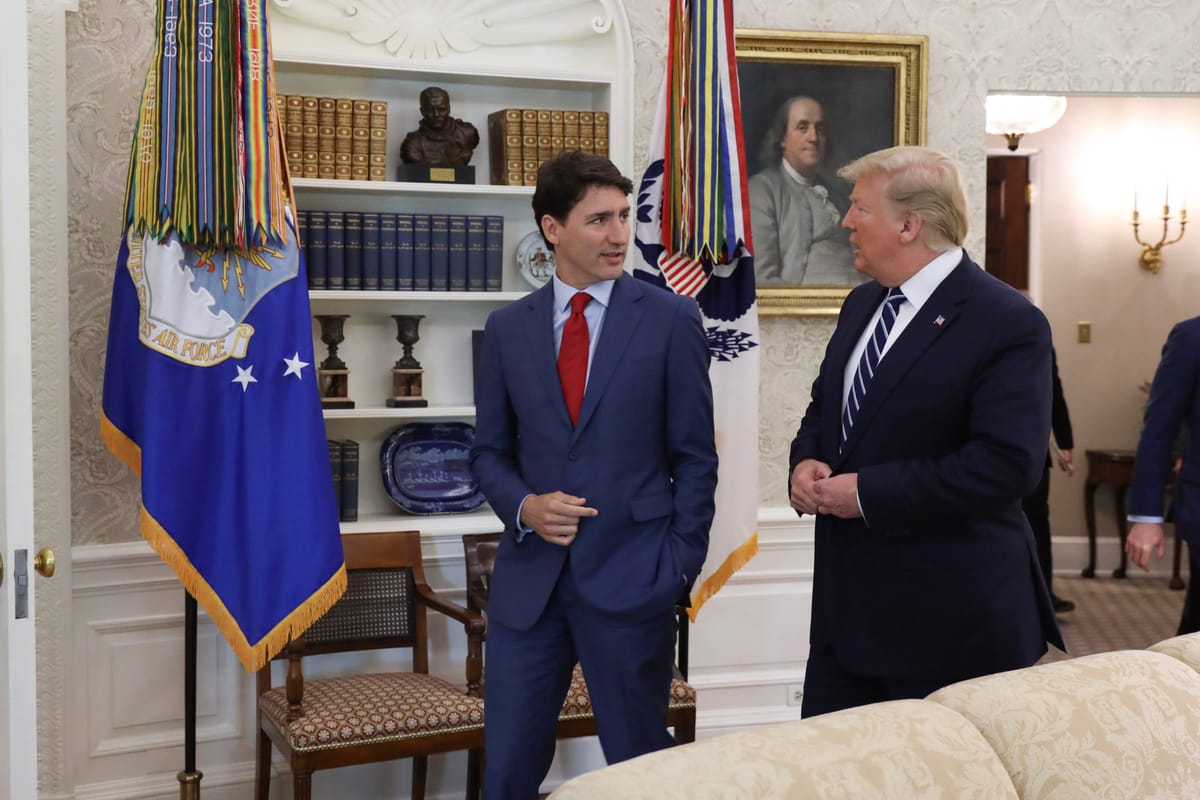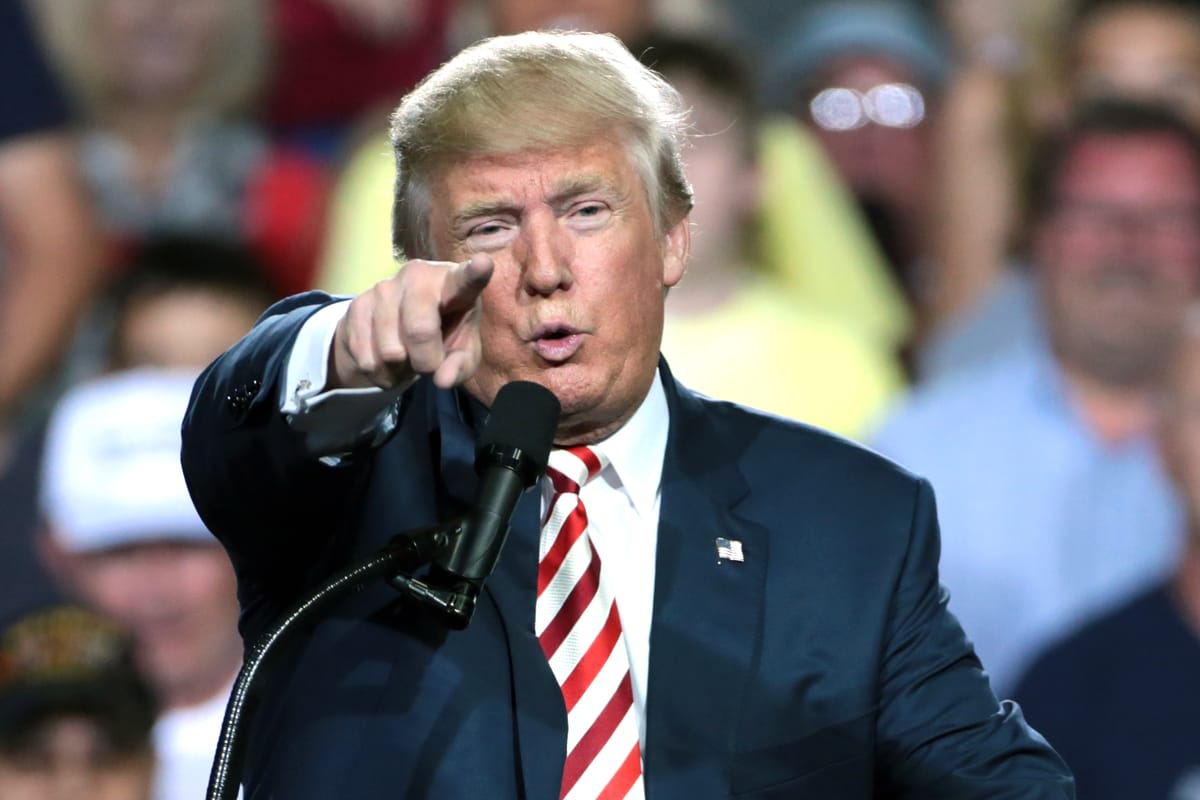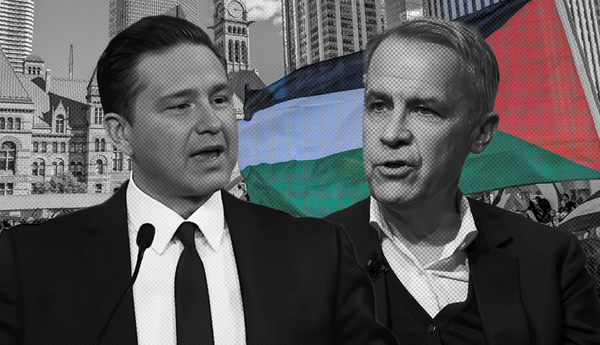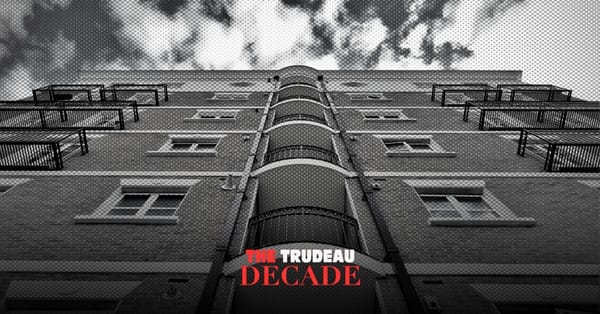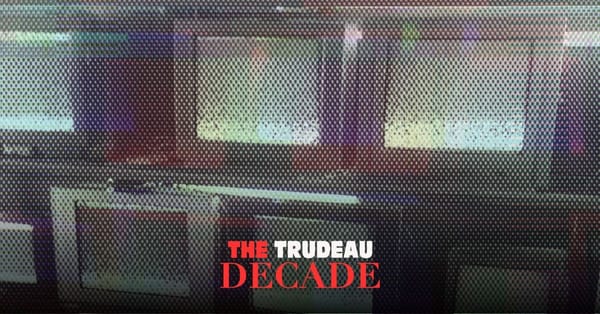We are dealing with a gangster state.
This week, Prime Minister Justin Trudeau announced that after chatting with United States President Donald Trump, Canada will be spared from crippling 25 per cent tariffs. For now.
In return, Trudeau re-committed to spending $1.3 billion on a previously crafted “border plan,” and announced the creation of a new “Fentanyl Czar” and “Canada-U.S. Joint Strike Force.”
By now, many of us are familiar with the statistics showing the relatively tiny quantities of fentanyl that enter the U.S. from Canada.
This isn’t about fentanyl — or migration.
But entertaining Trump’s ever-changing demands, even with symbolic measures, sets a dangerous precedent.
When the 30-day reprieve expires, don’t be surprised if Trump slaps down a new set of ridiculous demands, followed by another delay if Canada obeys. And so on, with the threat of tariffs — and annexation — constantly repeated.
As Sam Gindin recently warned in an interview with The Maple, “in exchange for a return to the previous tariff status quo, Canada will accept all kinds of policies the American administration has no business dictating to us.”
What is Trump’s larger game? Journalist Ryan Grim, writing for Drop Site, recently examined the possibility that Trump is pivoting the U.S. away from its status as a global hegemon towards being a more “regional power.”
In that context, Grim writes, “Trump’s belligerence toward Greenland and Canada, for example, appears more like an empire stepping back from the world stage and building trenches closer to home.”
The article was written before Trump openly mused about ethnically cleansing and occupying Gaza, where former U.S. president Joe Biden before him supported Israel’s genocide to the hilt (with support from Canada). Whatever Trump’s larger plans may be, if there are any, the U.S. remains a global menace.
As we have explored in another recent article at The Maple, America’s erosion of Canadian sovereignty through free trade agreements has been underway for decades.
Now, the gloves are off, and the best that Canadian leaders have come up with so far are feeble attempts to hit the reset button with characteristic compliance and pleas to our American “friends.”
If we close our eyes for long enough, they seem to imagine, perhaps we’ll wake up in a world where the very agreements that paved the way for Canada’s dangerous dependency on the U.S. are refreshed anew.
In every aspect, the current government seems incapable of thinking about the world in a way that grasps the radically changing realities before us.
Liberal leadership frontrunners, meanwhile, talk of a need to “diversify” the Canadian economy while tripping over themselves to promise that they will hike military spending to a minimum of two per cent of GDP — as demanded by the U.S. and Trump himself.
Mark Carney even described America’s belligerence as a passing “fever,” and said the U.S. and Canada should remain closely integrated, despite seeking trade elsewhere.
Conservative Party Leader Pierre Poilievre responded to Trump’s tariff threats by stitching together ridiculous pledges to waste more money on militarizing Canadian borders, while insisting that this acquiescence to America’s marching orders — wholly embraced by some of his conservative peers — amounts to a “Canada First” plan.
Kissing Trump’s feet is no less undignified when wrapped in a maple flag.
Such clumsy attempts at patriotism — and especially varieties that whitewash Canada’s own genocidal crimes — gimmicky baseball caps, and pleas for a restoration of outdated free trade conventions are of no use to counter Trump’s plans.
Recent boos against the American national anthem — even after the tariff pause — are long overdue, and perhaps speak to a sentiment that gets to the more urgent task at hand: a need for a radical departure from Canada’s subservience and dependence on the American Empire.
As Gindin put it: “We need to play a different game. There’s no nice middle ground here. The options have been polarized and unless we understand that and start discussing and debating what this means, we will keep confronting ever limited, demoralizing choices.”
“This is not about aiming for a nationalist form of sovereignty but one that is based on collectively and democratically determining what kind of society we want.”
In the critical months ahead, are there any political leaders in Canada ready to seriously advance these conversations?


